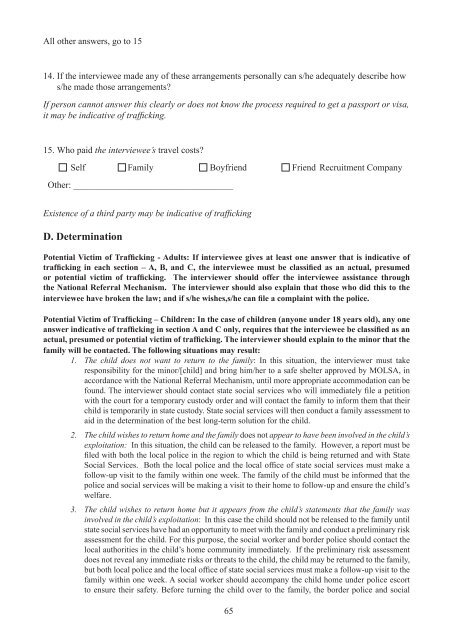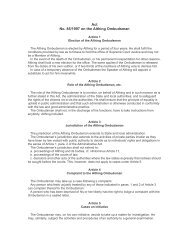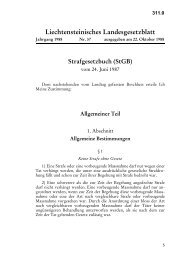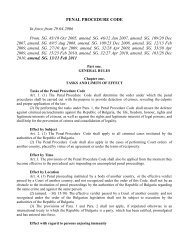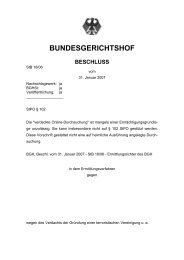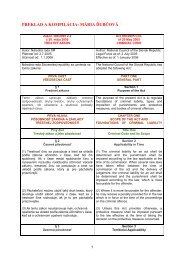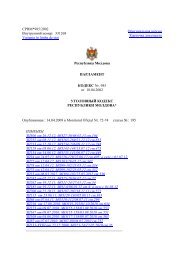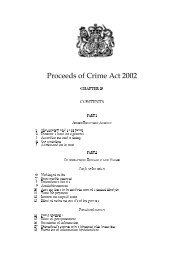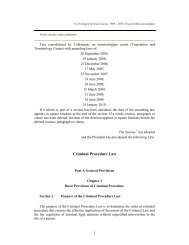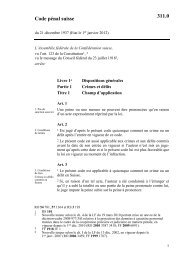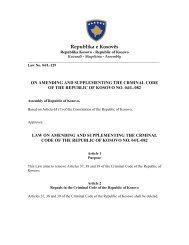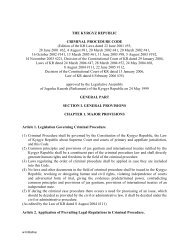strategjia kombetare shqiptare per luften kunder ... - Legislationline
strategjia kombetare shqiptare per luften kunder ... - Legislationline
strategjia kombetare shqiptare per luften kunder ... - Legislationline
Create successful ePaper yourself
Turn your PDF publications into a flip-book with our unique Google optimized e-Paper software.
All other answers, go to 15<br />
14. If the interviewee made any of these arrangements <strong>per</strong>sonally can s/he adequately describe how<br />
s/he made those arrangements?<br />
If <strong>per</strong>son cannot answer this clearly or does not know the process required to get a passport or visa,<br />
it may be indicative of trafficking.<br />
15. Who paid the interviewee’s travel costs?<br />
Self Family Boyfriend Friend Recruitment Company<br />
Other: ___________________________________<br />
Existence of a third party may be indicative of trafficking<br />
D. Determination<br />
Potential Victim of Trafficking - Adults: If interviewee gives at least one answer that is indicative of<br />
trafficking in each section – A, B, and C, the interviewee must be classified as an actual, presumed<br />
or potential victim of trafficking. The interviewer should offer the interviewee assistance through<br />
the National Referral Mechanism. The interviewer should also explain that those who did this to the<br />
interviewee have broken the law; and if s/he wishes,s/he can file a complaint with the police.<br />
Potential Victim of Trafficking – Children: In the case of children (anyone under 18 years old), any one<br />
answer indicative of trafficking in section A and C only, requires that the interviewee be classified as an<br />
actual, presumed or potential victim of trafficking. The interviewer should explain to the minor that the<br />
family will be contacted. The following situations may result:<br />
1. The child does not want to return to the family: In this situation, the interviewer must take<br />
responsibility for the minor/[child] and bring him/her to a safe shelter approved by MOLSA, in<br />
accordance with the National Referral Mechanism, until more appropriate accommodation can be<br />
found. The interviewer should contact state social services who will immediately file a petition<br />
with the court for a temporary custody order and will contact the family to inform them that their<br />
child is temporarily in state custody. State social services will then conduct a family assessment to<br />
aid in the determination of the best long-term solution for the child.<br />
2. The child wishes to return home and the family does not appear to have been involved in the child’s<br />
exploitation: In this situation, the child can be released to the family. However, a report must be<br />
filed with both the local police in the region to which the child is being returned and with State<br />
Social Services. Both the local police and the local office of state social services must make a<br />
follow-up visit to the family within one week. The family of the child must be informed that the<br />
police and social services will be making a visit to their home to follow-up and ensure the child’s<br />
welfare.<br />
3. The child wishes to return home but it appears from the child’s statements that the family was<br />
involved in the child’s exploitation: In this case the child should not be released to the family until<br />
state social services have had an opportunity to meet with the family and conduct a preliminary risk<br />
assessment for the child. For this purpose, the social worker and border police should contact the<br />
local authorities in the child’s home community immediately. If the preliminary risk assessment<br />
does not reveal any immediate risks or threats to the child, the child may be returned to the family,<br />
but both local police and the local office of state social services must make a follow-up visit to the<br />
family within one week. A social worker should accompany the child home under police escort<br />
to ensure their safety. Before turning the child over to the family, the border police and social<br />
65


